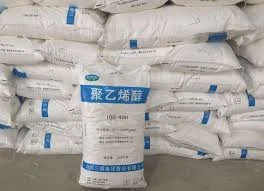RDP for Ceramic Tile Adhesive Enhancing Bonding Performance
In the construction and renovation industry, adhesives play a crucial role in ensuring the durability and aesthetic appeal of installations, especially for ceramic tiles. One of the most significant advancements in adhesive technology is the use of Redispersible Polymer Powder (RDP). RDP enhances the performance of ceramic tile adhesives, providing superior bonding properties, flexibility, and water resistance, making it the preferred choice for professionals.
What is RDP?
Redispersible Polymer Powder is a dry polymer that can be re-dispersed in water to form a stable emulsion. It is typically derived from various polymers, including vinyl acetate, ethylene, and styrene. When added to cement-based materials, RDP improves adhesion and overall performance, providing a significant enhancement in tile installation projects.
Advantages of RDP in Ceramic Tile Adhesives
1. Improved Adhesion One of the primary benefits of incorporating RDP into ceramic tile adhesive formulations is significantly improved adhesion to various substrates. This enhanced bond strength is crucial for both interior and exterior applications, ensuring that tiles remain firmly in place even under challenging conditions.
2. Flexibility Ceramic tiles can be subject to movement due to temperature changes or structural shifts. RDP-modified adhesives provide flexibility, allowing for slight movements without cracking the tile or adhesive. This property is particularly important in environments where thermal expansion and contraction are significant concerns.
rdp for ceramic tile adhesive

3. Water Resistance Ceramic tiles are often used in moisture-prone areas such as bathrooms and kitchens. RDP increases the water resistance of the adhesive, preventing water ingress that could weaken the bond over time. This resistance is vital for maintaining the integrity and longevity of tile installations.
4. Reduced Shrinkage Shrinkage of the adhesive can lead to cracks and a compromised bond. RDP helps to minimize this issue, ensuring that the adhesive maintains its original properties throughout the curing process.
5. Ease of Application RDP-based adhesives are easier to spread and apply. The improved workability allows for more efficient tile installation, saving time and labor costs on the job site.
6. Versatility RDP can be used in combination with various other additives to customize the adhesive properties for specific applications. This versatility allows manufacturers to create formulations tailored to meet the specific needs of different environments, such as outdoor installations or areas subject to heavy foot traffic.
Conclusion
Redispersible Polymer Powder (RDP) has revolutionized the production and performance of ceramic tile adhesives. Its ability to enhance adhesion, flexibility, and water resistance makes it an invaluable component in tile installation. As the construction industry continues to evolve, the use of RDP is expected to grow, offering innovative solutions that meet the increasing demands for durability and performance in ceramic tile applications. For professionals in the field, understanding the benefits of RDP can lead to more successful projects and satisfied customers. Embracing this technology not only improves the quality of work but also enhances the longevity and beauty of ceramic tile installations.
-
Rdp that The Revolutionary Polymer Powder Transforming Modern Construction MaterialsNewsAug.11,2025
-
Hpmc Powder that Versatile Additive for Detergents and Personal CareNewsAug.11,2025
-
Hpmc Hydroxypropyl Methylcellulose that Essential Building Material Additive from Shijiazhuang Gaocheng YongfengNewsAug.11,2025
-
Hydroxypropyl Methyl Cellulos Hpmc that Essential for Construction ApplicationsNewsAug.11,2025
-
Mhec Powder that Revolutionizing Construction Chemistry with Cellulose Ether SolutionsNewsAug.11,2025
-
Industri Hpmc that The Global Backbone of Advanced ConstructionNewsAug.11,2025




